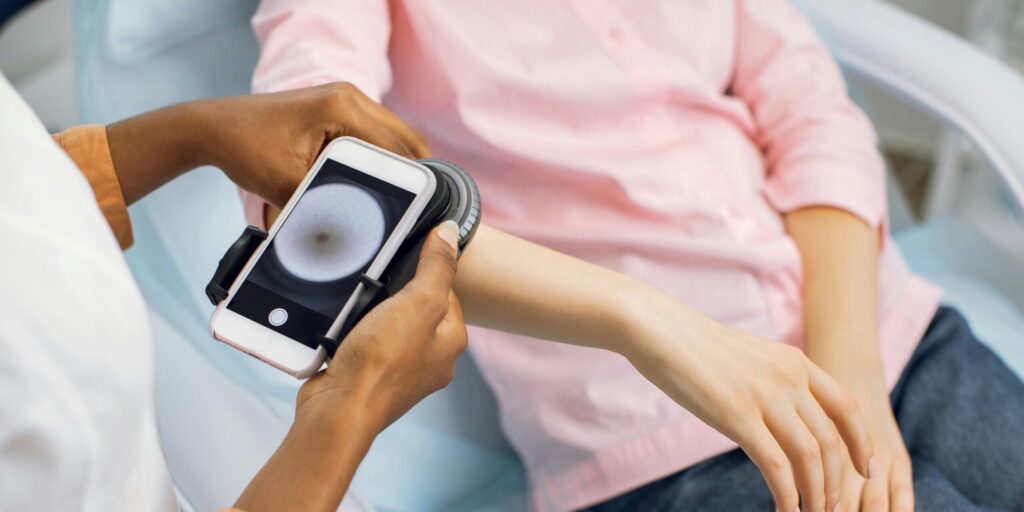A revolutionary new approach to monitoring mental health is taking shape as researchers explore how smartphones can be used to detect and track mental health symptoms. The goal of this innovative technology is to provide clinicians with real-time data that can enhance the accuracy and timeliness of mental health assessments. As reported on September 27, 2025, this development represents a significant leap forward in integrating modern technology with healthcare, offering the potential to improve patient outcomes and reshape the landscape of mental health treatment.
Modern smartphones, equipped with an array of sensors such as accelerometers, GPS trackers, gyroscopes, and heart rate monitors, are now being used as tools to monitor physical and behavioral patterns associated with mental health. Researchers are exploring how these sensors can be utilized to detect early signs of conditions such as depression, anxiety, bipolar disorder, and other mental health issues, even before they are clinically apparent. This approach aims to capture subtle behavioral shifts that may signal the onset of mental health struggles, offering clinicians a proactive way to address issues before they escalate.
The primary advantage of using smartphones for mental health monitoring is the ability to collect continuous, real-time data. Traditional mental health assessments typically rely on periodic in-person appointments or patient self-reports, both of which have limitations. In-person visits, while valuable, may not always capture the day-to-day fluctuations in a patient’s mood, behavior, or physical health. Self-reports can also be skewed by a person’s mood, memory, or reluctance to share certain information. In contrast, smartphone sensors can provide a more objective, consistent measure of a person’s daily activities, including sleep patterns, physical activity, and social interactions.
Read Also: https://atoztimes.com/realme-gt-7-pro-smartphone-launched-with-snapdragon-8-elite-chipset/
For example, a decrease in physical activity or social withdrawal could be early indicators of depression or anxiety, and disruptions in sleep patterns are commonly linked to mental health conditions. If smartphone sensors can accurately track these changes over time, they could provide clinicians with invaluable data on a patient’s emotional and behavioral state. This continuous monitoring allows for a more comprehensive view of a patient’s mental health, offering early warning signs that could otherwise go unnoticed.
By detecting these early changes, smartphone-based monitoring could enable clinicians to intervene sooner, potentially preventing mental health conditions from becoming more severe or difficult to treat. Early intervention is often key to improving mental health outcomes, as addressing issues before they worsen can lead to faster recovery times and more effective treatment plans. With smartphone data providing real-time feedback, clinicians would be better equipped to personalize treatment for each individual, adjusting strategies as needed based on the ongoing data.
Furthermore, this approach has the potential to make mental health care more accessible. Many people face barriers to traditional mental health services, such as cost, stigma, or geographic location. Smartphone-based monitoring could provide a more convenient and less stigmatizing way for individuals to receive ongoing care and support. Patients could track their mental health from the comfort of their own homes, with data automatically collected and shared with their healthcare providers. This could encourage more people to engage with mental health care, particularly those who might otherwise avoid it due to personal or logistical reasons.
However, there are several challenges to address before smartphone-based mental health monitoring can become mainstream. One of the most significant concerns is privacy and data security. Since smartphones will be collecting sensitive personal health data, ensuring that this information is kept secure and confidential is crucial. There must be robust systems in place to protect patient data from unauthorized access and misuse, and patients must have control over how and when their data is shared.
Another challenge is ensuring the accuracy of the data collected. Smartphone sensors, while powerful, are not infallible. Environmental factors, such as a phone’s position or movement, could potentially affect the readings, and technical malfunctions could lead to inaccurate data. Researchers and developers will need to work on improving the reliability of these technologies to ensure that the data collected is both precise and meaningful.
Despite these challenges, the potential of smartphone sensors in mental health monitoring is enormous. By providing clinicians with continuous, real-time data, smartphones can revolutionize the way mental health conditions are diagnosed and treated. The ability to track symptoms and behaviors over time could lead to more accurate diagnoses, better treatment outcomes, and more personalized care for patients.
As this technology continues to evolve, it is likely that smartphones will become a central tool in the management of mental health. The integration of continuous, real-time data into clinical practice will provide a more complete and dynamic picture of a person’s mental health, allowing for earlier intervention and more effective management of mental health conditions. In the future, smartphones may not just be tools for communication or entertainment, but key players in the effort to improve global mental health care.


